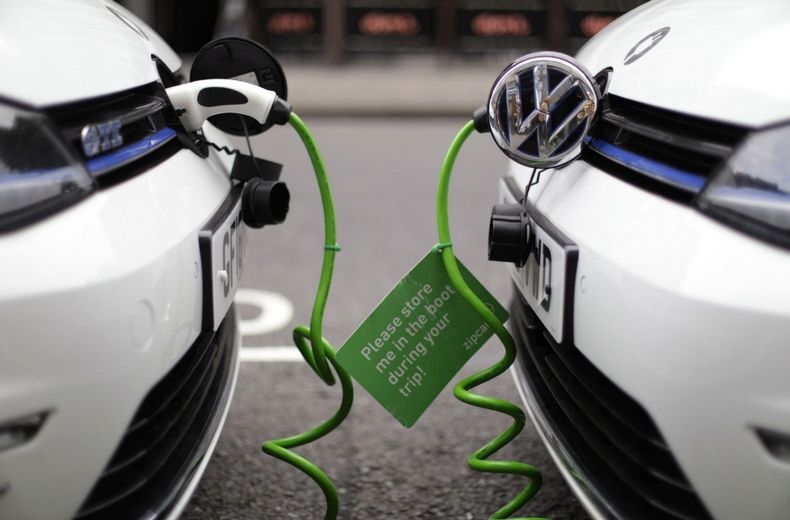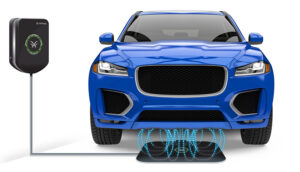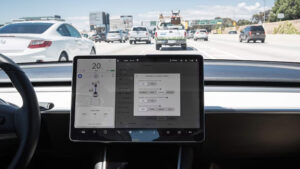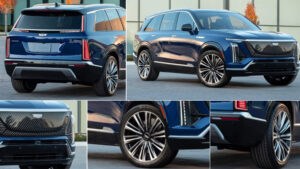
With the growing concern over environmental issues and the depletion of fossil fuels, alternative fuel-efficient cars have emerged as a viable solution to reduce carbon emissions and create a more sustainable transportation system. Rouw Auto will explore the benefits of alternative fuel-efficient cars and their potential to revolutionize the automotive industry.
The Rise of Alternative Fuel-Efficient Cars
- The Need for Change
Traditional gasoline-powered cars heavily rely on fossil fuels, which not only contribute to air pollution but also contribute to climate change. As the world becomes more conscious of the impact of greenhouse gas emissions, there is a pressing need for a shift towards cleaner and greener transportation alternatives. - Enter Alternative Fuels
Alternative fuels, such as electricity, hydrogen, biofuels, and natural gas, have gained traction as viable alternatives to gasoline. These fuels offer significant environmental benefits and can help reduce our dependence on fossil fuels. Alternative fuel-efficient cars, including electric vehicles (EVs) and hybrid vehicles, have gained popularity due to their efficiency, reduced emissions, and innovative technology.
Types of Alternative Fuel-Efficient Cars
- Electric Vehicles (EVs)
Electric vehicles have made significant strides in recent years, thanks to advancements in battery technology and charging infrastructure. EVs are powered solely by electricity, which eliminates tailpipe emissions, making them a clean and green choice. They offer impressive acceleration and have a longer driving range compared to earlier models. With the increasing availability of charging stations, EVs are becoming a practical choice for daily commuting and long-distance travel. - Hybrid Vehicles
Hybrid vehicles combine an internal combustion engine with an electric motor. They utilize both gasoline and electric power, resulting in improved fuel efficiency and reduced emissions. Hybrid cars are particularly suitable for urban driving, as they can switch between electric and gasoline power seamlessly. They offer a smooth and quiet driving experience while reducing environmental impact. - Hydrogen Fuel Cell Vehicles
Hydrogen fuel cell vehicles use hydrogen gas to generate electricity, which powers an electric motor. These vehicles emit only water vapor, making them completely emission-free. Hydrogen fuel cell technology is still in its early stages of development, but significant progress has been made in terms of efficiency and infrastructure. As advancements continue, hydrogen fuel cell vehicles hold great promise for a sustainable future. - Biofuel Vehicles
Biofuels are derived from renewable sources such as plant matter and agricultural waste. They can be used as a substitute for gasoline and diesel in internal combustion engines. Biofuel vehicles offer a carbon-neutral or even carbon-negative alternative to traditional fuel-powered cars. They provide a way to repurpose organic waste and reduce greenhouse gas emissions.
Benefits of Alternative Fuel-Efficient Cars
- Environmental Impact
One of the primary advantages of alternative fuel-efficient cars is their reduced environmental impact. By utilizing cleaner fuels or electric power, these vehicles emit fewer pollutants, including greenhouse gases. They play a crucial role in mitigating climate change and improving air quality, ultimately creating a healthier and more sustainable environment for all. - Energy Independence
Alternative fuel-efficient cars promote energy independence by reducing our reliance on fossil fuels. As the world’s oil reserves continue to deplete, finding sustainable energy sources is becoming increasingly important. By adopting alternative fuels, we can diversify our energy portfolio and decrease our vulnerability to oil price fluctuations and geopolitical tensions. - Cost Savings
While the initial purchase price of alternative fuel-efficient cars may be higher than their gasoline counterparts, they offer significant cost savings in the long run. Electric vehicles, for instance, have lower operating costs due to the lower cost of electricity compared to gasoline. Moreover, maintenance costs are generally lower as these vehicles have fewer moving parts and require less frequent servicing. - Technological Innovation
- The development of alternative fuel-efficient cars has spurred technological innovation in the automotive industry. From advancements in battery technology to the improvement of fuel cell efficiency, these vehicles are driving progress and pushing boundaries. As more resources are invested in research and development, we can expect even greater breakthroughs in the future.
The Future of Sustainable Transportation
Alternative fuel-efficient cars are not merely a passing trend; they represent the future of sustainable transportation. Governments and industry leaders worldwide are embracing these vehicles as part of their efforts to combat climate change and reduce carbon emissions. With ongoing advancements in technology, infrastructure, and public awareness, the adoption of alternative fuel-efficient cars is expected to accelerate in the coming years.
As consumers, we have the power to drive change by choosing alternative fuel-efficient cars. By making a conscious decision to prioritize sustainability and reduce our carbon footprint, we contribute to a cleaner and greener future for generations to come.








